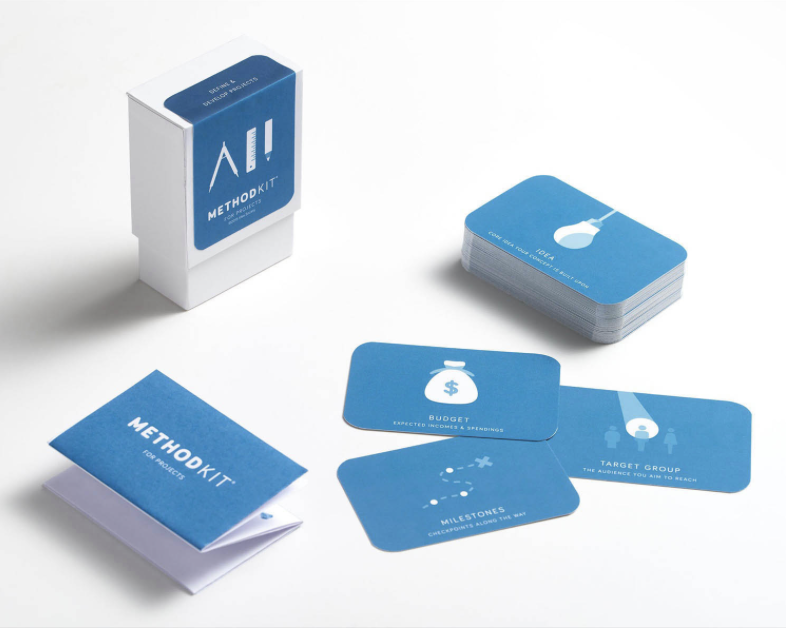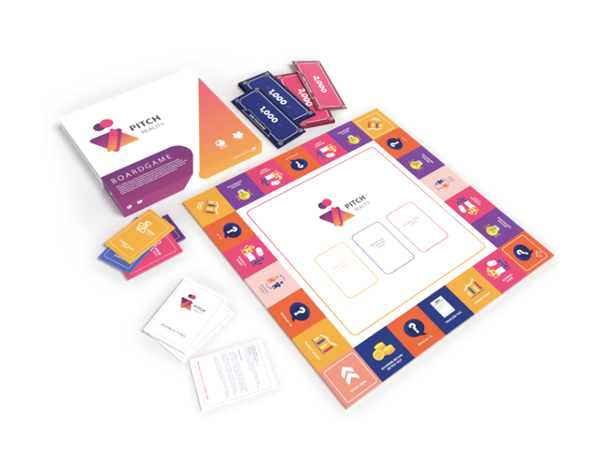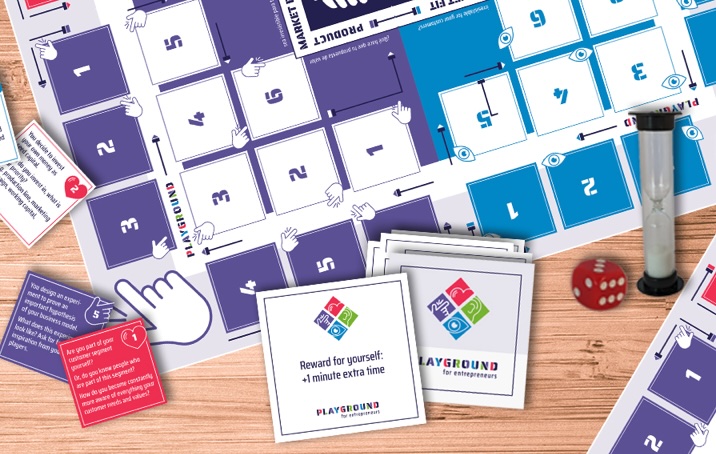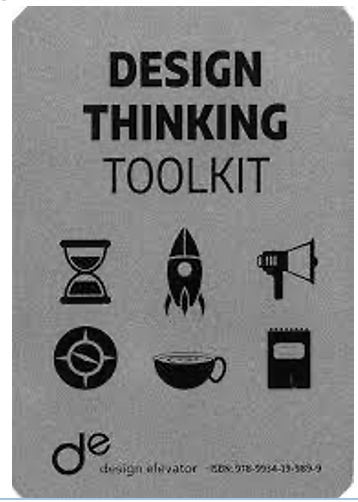| Duration: 30+ min Number of players: 2+ player/s Materials/ Tools needed: Card set “Method Kit for Projects” Publisher: MethodKit Language: EN Links: https://methodkit.com/shop/methodkit-for-projects/ |
Short description
“MethodKit for Projects” is a deck of cards that helps you clarify thoughts and develop ideas. It gives you an overview of the key aspects of working with projects. A tool to think with, to use for workshop organizing and to facilitate discussions.MethodKit is an open-ended analog tool initially designed to be a flexible co-facilitator in any workshop you design. They help you discuss, map, plan, ideate & prioritize. Below we show how to use the cards and introduce additional tools to make it even easier to work with the cards.
Educational value/ Learning Objectives
MethodKit for Projects contains 56 illustrated aspect cards, each with a key issue or method that aids in defining and giving structure to your project. The cards become catalysts to accelerate the idea development process, they support you when you get stuck and give you an overview. We believe that the cards makes things so much easier. We ourselves even use the MethodKit for Projects for developing new tools!fy personal strengths, weaknesses and inner resource.
Recommendations for use
- Use the kits to understand each other, map different types of projects and come up with new ideas.
- Each card represents an approach that helps you think about the topic from a new angle. Icon, headline and description; strong visual language, bright colors. They are deliberately simple, to not distract you from what’s really important – your ideas.
- They help you with…
- New ideas – Spark your creativity by combining building blocks and discussing new possibilities.
- A shared language – Collaborate and co-create with your peers, lets you align mutual thoughts and ideas.
- Structure – Shape your meetings and workshops that otherwise may drift or be ineffective.
- Ready-to-use topics – Start the work right away with prepared subjects and categories.
Tips and Tricks for Facilitators
How to adapt game for different groups, topics, occasions/needs
The kits should be…
- Tangible. Offer hands-on interaction.
- Visual. Influence emotions, learning and productivity.
- Essentials only. Keep your focus.
- Guides to complexity. See the big picture.
- Conversation starters. Share ideas and co-create.
- Accessible and universal. Includes everyone.
- Structured and flexible. Adapts to your needs.
- Well researched and Peer-reviewed. A scientific approach to each topic.
- Not the answer. You are the expert(s).
Feedback questions
How was the activity?
What was the most challenging?
What did you enjoy the most?
Further discussion topics
Lifelong learning
Project management




